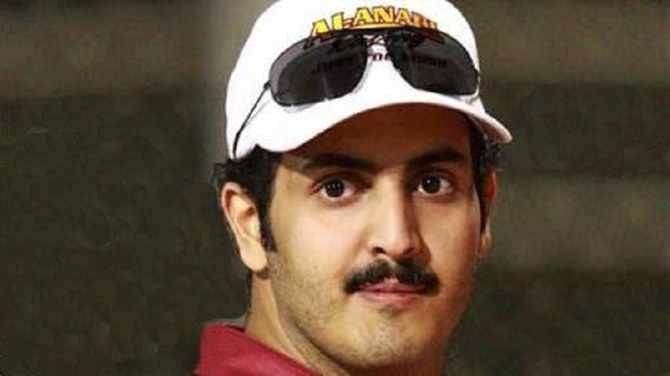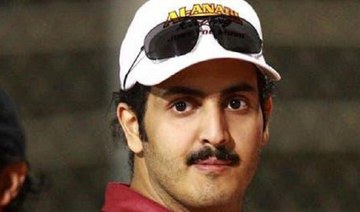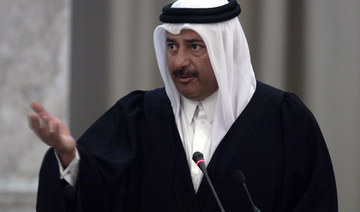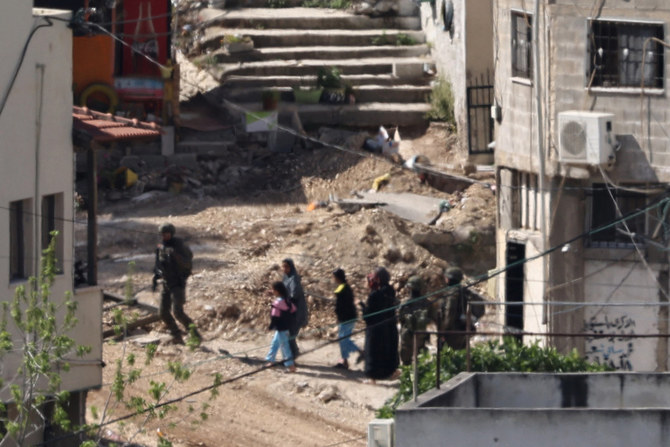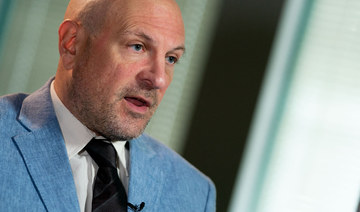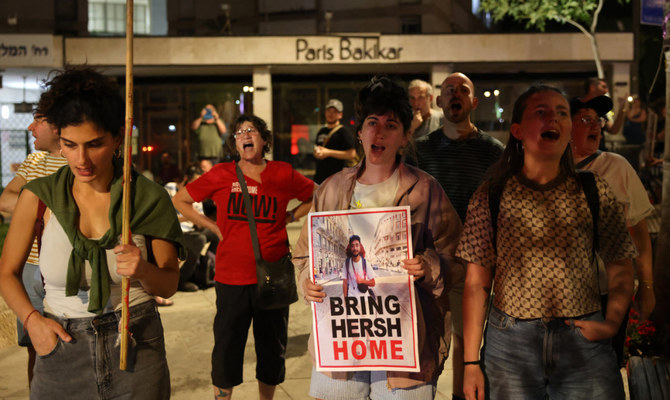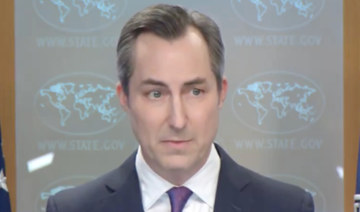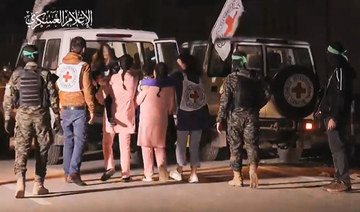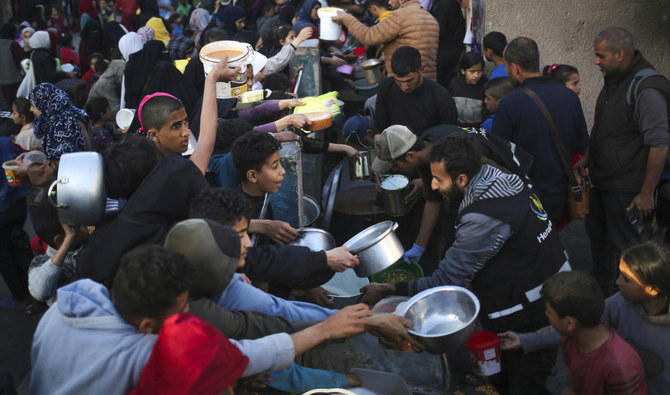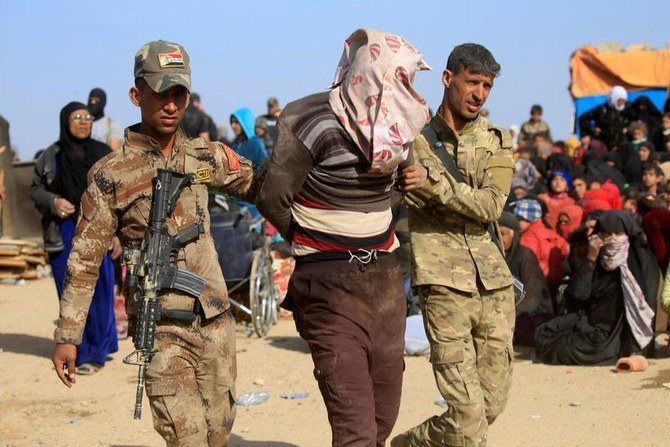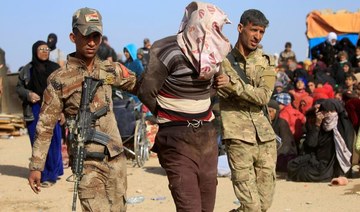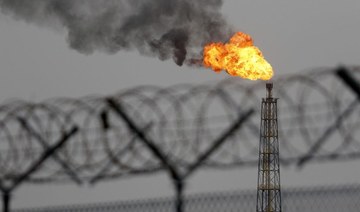CHICAGO: Sheikh Khaled Al-Thani, the brother of Qatar’s Emir Tamim bin Hamad Al-Thani, is alleged to have “personally murdered” an employee who insulted his wife in a planned new lawsuit that will allege a history of violence and threats.
Attorney Rebecca Castañeda said the original lawsuit she filed in 2019 that detailed Sheikh Khaled’s violent behavior and threats against two American contractors is being expanded to include three more Americans who allege “even worse violence” that also includes threats to kill a head of the American sports racing industry.
Castañeda said after forcing Sheikh Khaled’s attorneys to respond to the lawsuit in November — satisfying the US federal court requirement that defendants be “served” — she sought out other individuals who work for or had worked for Sheikh Khaled, saying that she had information regarding other crimes.
“Between the five plaintiffs, we have a total of seven solicitations for murder. One of the plaintiffs watched the sheikh murder someone in front of him and (the sheikh) actually asked him to assist in the murder. He said no. We also have additional weapons solicitations,” Castañeda said, referring to the impending lawsuit.
“He (Sheikh Khaled) murdered a fellow employee in front of one of the plaintiffs who is filing suit. He asked the plaintiff to actively participate in the murder.”
Sheikh Khaled had previously been accused of threatening to kill several people including his employees who refused his orders, Castañeda said.
Castañeda said that the murder victim was “an Indian employee.” Sheikh Khaled’s wife became angry after the employee failed to pick her up from shopping at an agreed time.
“The sheikh’s wife apparently felt slighted that an employee did not pick her up on time. The employee was murdered. The suit will allege the timeline for that and how that happened, and the terror the plaintiff felt in being involved,” Castañeda said.
“This took place in Qatar, so you have an American citizen in a foreign country with a foreign royal. You can imagine that your chances and your opportunity for escape are zero percent. There are no other options. The plaintiff witnessed that employee’s abuse and eventual murder.”
The new lawsuit will also detail how Sheikh Khaled, the owner of Al-Anabi Racing USA LLC, based in Massachusetts, sought to have one of his racing industry rivals killed.
“The sheikh asked one of the plaintiffs to murder the head of a US racing car organization,” said Castañeda, noting Sheikh Khaled races cars in international competitions.
In another instance, made by one of the three new plaintiffs, the lawsuit will detail how Sheikh Khaled ordered a rival sheikh in Bahrain be targeted in a hacking operation.
“That sheikh was successfully hacked — business websites, personal emails and computer servers,” said Castañeda.
Castañeda described the Bahraini sheikh targeted by Sheikh Khaled as “a personal enemy, someone the sheikh deals with in a competition sense (racing).”
She said that the names of all victims and targets will be identified when the new lawsuit is filed. The five plaintiffs are American, she said. Two of the new plaintiffs are former military contractors who worked for Sheikh Khaled, like Pittard, while the third new plaintiff worked for the American government.
Castañeda described Sheikh Khaled as “someone who has never been held accountable for his actions, and probably moves through life thinking the future will be the same. We’re here to tell him that is not the case.”
New sources step forward
The attorney said she had asked for information on Sheikh Khaled on Twitter and was surprised by the response. She vetted and interviewed the individuals, and added three to the lawsuit who will be identified when formal filing takes place.
“About January, we had more information that was coming in. I had previously done a pubic Twitter video stating that if anybody had information they wanted to share, whether they work for him, had worked for him, or just have information, please let us know, it will remain confidential,” Castañeda said.
“Several people contacted my office. We had some anonymous emails from people who didn’t want to be named that shared information, and then we had people who did want to be named and were willing to share their information publicly.”
Castañeda added: “It has become clear to me over the past several months that people are scared of somebody who has financial resources and the ability to take whatever actions they want. The lawsuit includes physical abuse, emotional abuse and basic power.”
She said that in February 2020, after the original lawsuit was withdrawn, Matthew Allende’s girlfriend was viciously assaulted in her home.
Castañeda said that she could not confirm the brutal rape and assault is linked to the lawsuit, but insisted the legal fight to hold Sheikh Khaled accountable for his misdeeds will not be discouraged by any intimidation.
First lawsuit flushed out Sheikh Khaled
The new revelations expand allegations detailed in the original lawsuit, filed on July 23, 2019, of how Sheikh Khaled threatened two employees Matthew Pittard and Matthew Allende. The two former employees worked for Sheikh Khaled’s companies and allege they were threatened at gunpoint when they refused orders in September 2017 to kill two unnamed Americans.
Sheikh Khaled had also claimed the targets had sullied “his social reputation.” When Pittard, a security professional, and Allende, a paramedic, refused, Sheikh Khaled imprisoned them and threatened to have them killed, too.
When Sheikh Khaled discovered an American he had imprisoned at his luxury palace in Qatar had been freed by Pittard and Allende, he threatened the former, saying, according to the lawsuit, that “he would kill him, bury his body in the desert and kill his family.”
The unnamed American captive was first arrested on Sheikh Khaled’s orders and jailed at the Onaiza police station in Doha before being moved to the sheikh’s residence.
Documents claim Allende scaled a two-meter security fence and a six-meter wall in order to escape from Sheikh Khaled’s Qatari compound after he was allegedly threatened at gunpoint.
Brandishing a Glock 26 automatic pistol, Sheikh Khaled demanded Pittard return the freed American or provide information on his whereabouts. If Pittard refused, Sheikh Khaled allegedly told him that he “would pay the price.”
“We have not refiled the lawsuit yet, but we will shortly,” Castañeda said. “We have continued our investigation and built additional complaints for three other men who have come forward who also worked for Sheikh Khaled.”
After temporarily withdrawing the lawsuit in January, Castañeda sought out other individuals who had similar allegations regarding Sheikh Khaled and spent four months researching the details.
Now that Sheikh Khaled has been “served” in the original lawsuit, he will not be able to duck or dodge the new lawsuit, Castañeda said.
“We are working on serving him (with the lawsuit). Obviously, as an international defendant, it is difficult. It is not the same as serving an American individual with corporate offices,” she said.
At least another five companies are also being added to the lawsuit.
•• Anyone who is working or has worked for Sheikh Khaled who wants to share information about his abuses can email Rebecca Castaneda in confidence to [email protected], or to call 813-708-7018.



